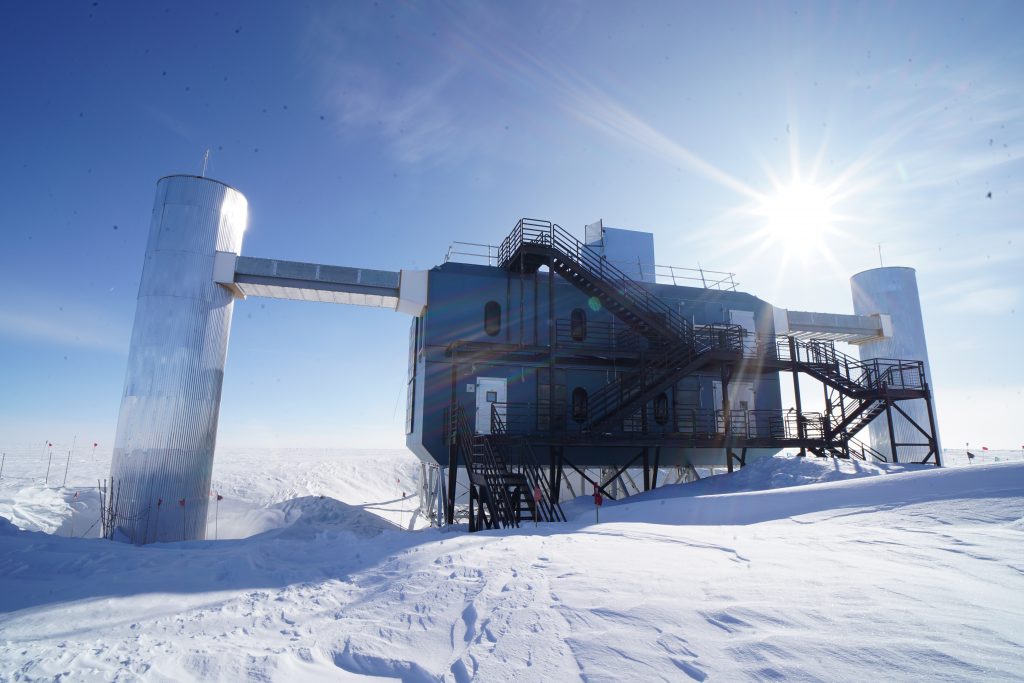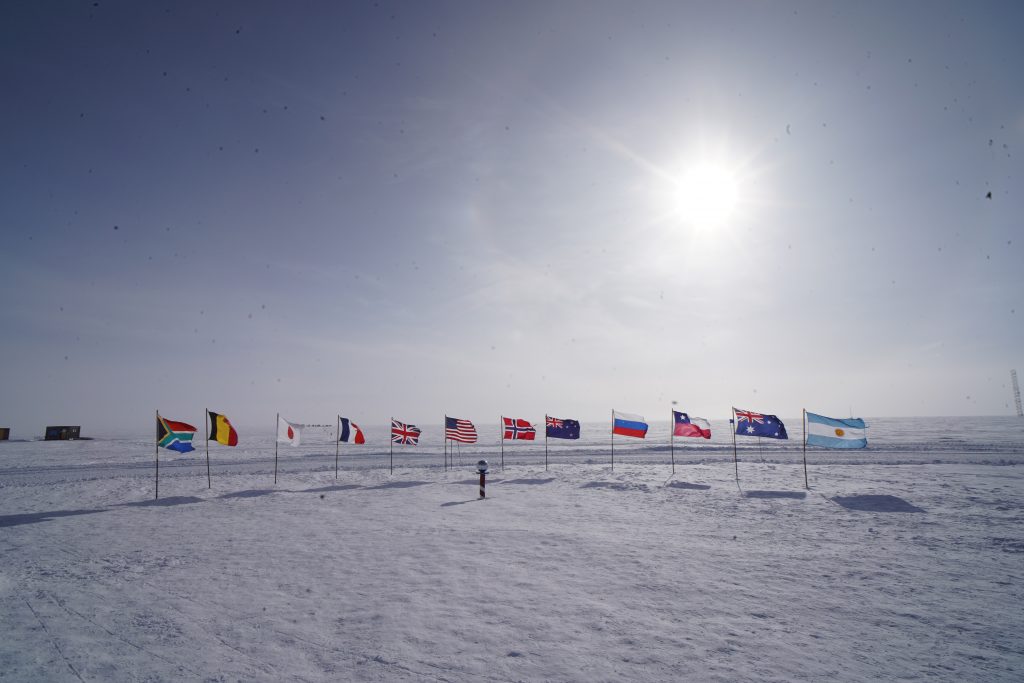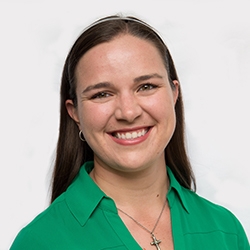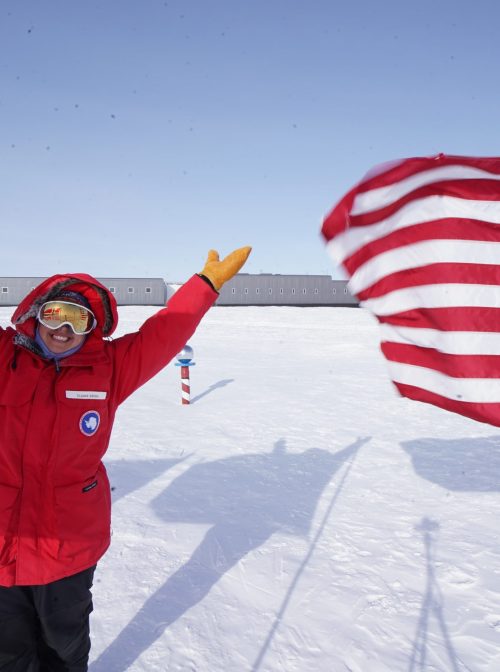But how can you be a scientist? Don’t you believe in the Bible?
I was asked these questions after introducing myself and my major at a Bible Study my sophomore year in college. I sat there confused for a few minutes before answering.
I am currently at the South Pole Station in Antarctica with the IceCube Neutrino Observatory, which is looking for tiny particles called neutrinos that hit Earth from distant cosmic events. IceCube is trying to find out more about these tiny particles, as well as where they come from, in an effort to learn more about our universe! I am so excited and honored and grateful to be here.
Religious people are the minority here at the station, and whenever my Catholic faith comes up, I am again asked those same questions I was asked years ago at Bible Study, but in reverse. How can you be religious? Don’t you believe in science?
I grew up Roman Catholic, attended 13 years of Catholic School, and still actively practice my faith as a scientist and a science educator. I had never seen a conflict between my faith and my scientific endeavors until I was posed these well-intentioned questions in college. Through my interfaith work, I have been able to learn and experience more about tensions between spiritual and scientific pursuits.

Many religious people, especially within Christianity, believe in God as a Creator. According to the Book of Genesis, God said let there be light…and there was light. Over the course of six days, God created water, the atmosphere, plants, animals, and humans.
Some see this tenant of God creating the universe in conflict with scientific theories of how the world came to be, such as the Big Bang Theory.
The Big Bang Theory suggests that the universe was created by an explosion from one singular point – and that over time – a long time, 13.4 billion years – particles came together to form light and stars and galaxies and planets and eventually molecules and cells and living things.

Some people will say, the Big Bang could not have happened because God created the universe. Others will say we have evidence of the Big Bang, so there’s no way God created the universe. I do not see the two as mutually exclusive. And I have found that the conflict between these stances comes from a misunderstanding of the other.
There is room for science in the Genesis creation story. God said let there be light, but it doesn’t say how. To me, God could have commanded the particles of the Big Bang to form the light. Or maybe He created the natural laws that allowed stars to come into being.
Likewise, there is room for a Creator in the Big Bang Theory. There are a lot of questions still to be answered like – how did something come from nothing? What actually “set off” the Big Bang? Maybe one day we will have more answers, but for me, this is where God fits in.
My position on the integration of God and science comes under attack constantly from both scientists and religious people. I take solace in Fr. Georges Lemaître, a Jesuit priest who is credited with theorizing the Big Bang Theory. He is quoted as saying “there are two paths to truth – I chose to follow both of them.”
After over ten years of studying both faith and science, I am ready with a response to all those questions: “I believe in God, and I believe in science. God created the universe. Science tells me how.”

Elaine Krebs is a Roman Catholic Christian currently living in Los Angeles. She graduated from the University of Southern California with a Master’s Degree in Marine and Environmental Biology, and now works as both a science teacher at a local museum, as well as Confirmation Coordinator at her local parish. Elaine was first introduced to interfaith work as a member of USC’s Interfaith Council, and continues to be involved, especially surrounding the intersection of science and religion. She also enjoys studying and experiencing diversity within religions, especially the different rites within Catholicism. In her free time, Elaine enjoys swing dancing, SCUBA diving, and traveling the world.




